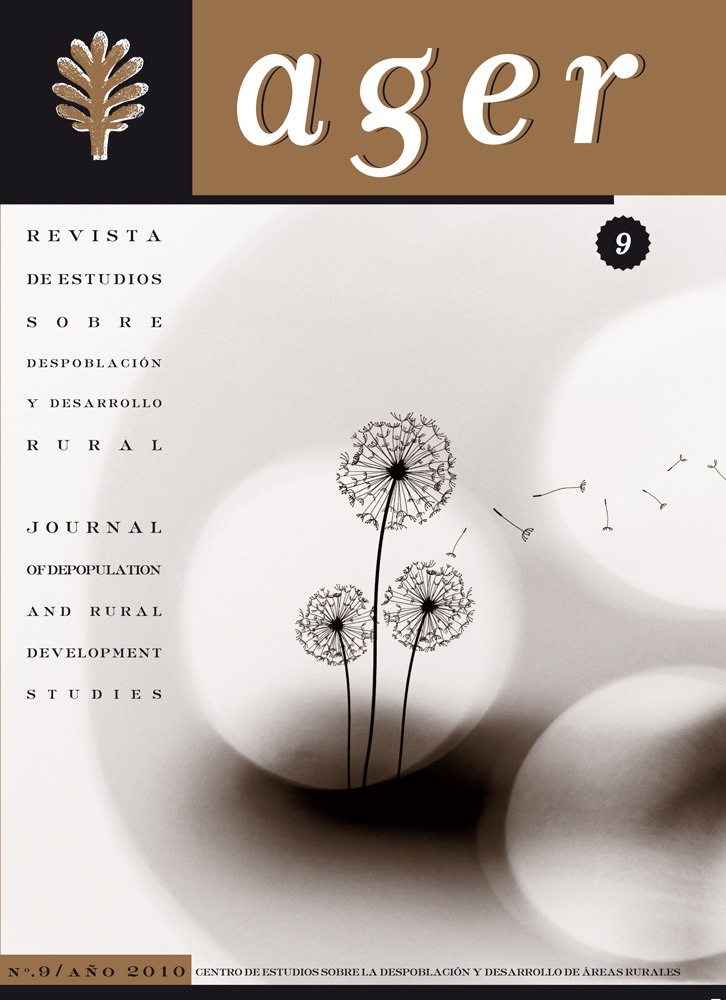Agri-environmental policy and local development: a case study of Ribeira Sacra in Galicia (Spain)
Abstract
The new rural development paradigm focuses on local specificities as a means of generating new competitive advantages, such as environmental and cultural amenities or local products. The new paradigm also shifts from a sectoral to a territorial policy approach, integrating the various policies at regional and local levels. This paper reports results of a study carried out among wine producers in the Spanish region of Galicia. Producers were located in a marginal area where terraces make a characteristic landscape. We have studied the factors influencing farmers’ willingness to adopt agri-environmental practices for landscape conservation, as well as the interactions with other policies aimed at local economic promotion. Analysis from in-depth interviews and secondary data shows the importance of transaction costs for both the administration and the farmers. Therefore, we have identified synergies between simultaneous actions to promote agricultural production and landscape conservation.Downloads
Published
How to Cite
Issue
Section
License
Authors who publish in this journal agree to the following terms:
a. Authors retain their copyright and grant the journal the right of first publication of their work, which will be simultaneously subject to the Creative Commons Attribution Licence, which allows third parties to share the work provided that the author and the journal's first publication are acknowledged.
b. Authors may enter into other non-exclusive licensing agreements for the distribution of the published version of the work (e.g., depositing it in an institutional repository or publishing it in a monographic volume) provided that the initial publication in this journal is acknowledged.
c. Authors are permitted and encouraged to disseminate their work via the Internet (e.g. in institutional digital archives or on their website), which may lead to interesting exchanges and increase citations of the published work. (See The effect of open access).

